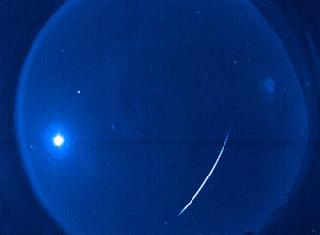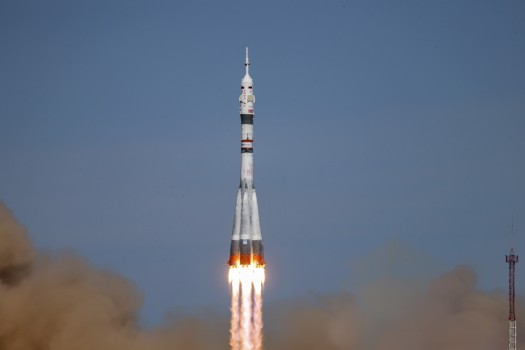
A 2010 Orionid meteor, seen over Western Ontario, Canada. A waxing gibbous moon shines brightly at the left side of the image. Photo: Meteor Physics Group, University of Western Ontario
HUNTSVILLE (BNS): Halley's Comet -the most famous of all comets- will light up the night sky this week, by producing spectacular displays of meteoroids, according to NASA's Jet Propulsion Laboratory (JPL).
The comet stops by Earth about every 76 years when it is closest to the Sun, it was last seen from Earth on February 9, 1986. Chinese astronomers first saw the comet over 2,000 years ago.
Halley's Comet leaves bits of itself behind -- in the form of small conglomerates of dust and ice called meteoroids -- as it moves in its orbit, which the Earth approaches in early May and mid-October.
When it does, it collides with these bits of ice and dust, producing a meteor shower as the particles ablate -- or burn up -- many miles above our heads.
The May shower is called the Eta Aquarids, as the meteors appear to come from the constellation Aquarius. The October shower has meteors that appear to come from the well-known constellation of Orion the Hunter, hence the name: Orionids.
Orionids move very fast, at a speed of 147,300 miles per hour. At such an enormous speed, the meteors don't last long, burning up very high in the atmosphere. Last year, the NASA allsky cameras at Marshall Space Flight Center in Huntsville, Alabama and in Chickamauga, Georgia recorded 43 definite Orionid meteors.
Most of these appeared at an altitude of 68 miles and completely burned up by the time they were 60 miles above the ground.
The comet is named for Edmond Halley, an English astronomer who computed the orbit of the comet.
 Previous Article
Previous Article Next Article
Next Article













The Indian Air Force, in its flight trials evaluation report submitted before the Defence Ministry l..
view articleAn insight into the Medium Multi-Role Combat Aircraft competition...
view articleSky enthusiasts can now spot the International Space Station (ISS) commanded by Indian-American astr..
view article